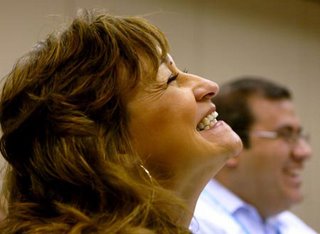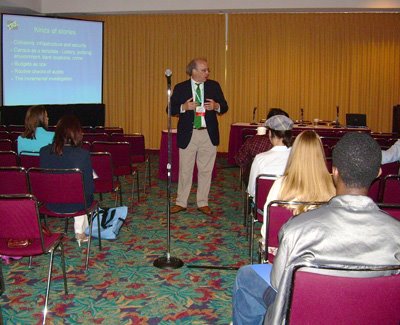Olmeda to head NAHJ
 Rafael Olmeda took the top post in an uncontested election as president of the National Association of Hispanic Journalists. Official results were announced at the organization’s annual convention gala in
Rafael Olmeda took the top post in an uncontested election as president of the National Association of Hispanic Journalists. Official results were announced at the organization’s annual convention gala in Olmeda, 36, is an assistant city editor for the South Florida Sun-Sentinel. He ran on a platform stressing advocacy, increased membership for young Hispanic journalists and strengthened fundraising.
Cindy Rodriguez, a columnist for the Denver Post, will assume Olmeda’s previous post as Vice President of Print. She was also unopposed. Manuel De La Rosa, reporter, KRGV-TV,
Elizabeth Zavala, assistant metro editor, Dallas Morning News is the organization’s new secretary. Gary Pina, of the Fort Worth Star Telegram, was elected general at-large officer and Claudio Alvaerz-Dunn, managing editor, Primera Hora, took the at-large post for Spanish Language media. He was previously Region I Director. Christine Show is the new student representative.
Sam Diaz, assistant technology editor, Washington Post will serve as financial officer of the organization and Lavonne Luquis, web editor for the National Education Association is at-large member for online.
For the first time ever, NAHJ members voted completely online. The online polling closed at noon on Saturday.


